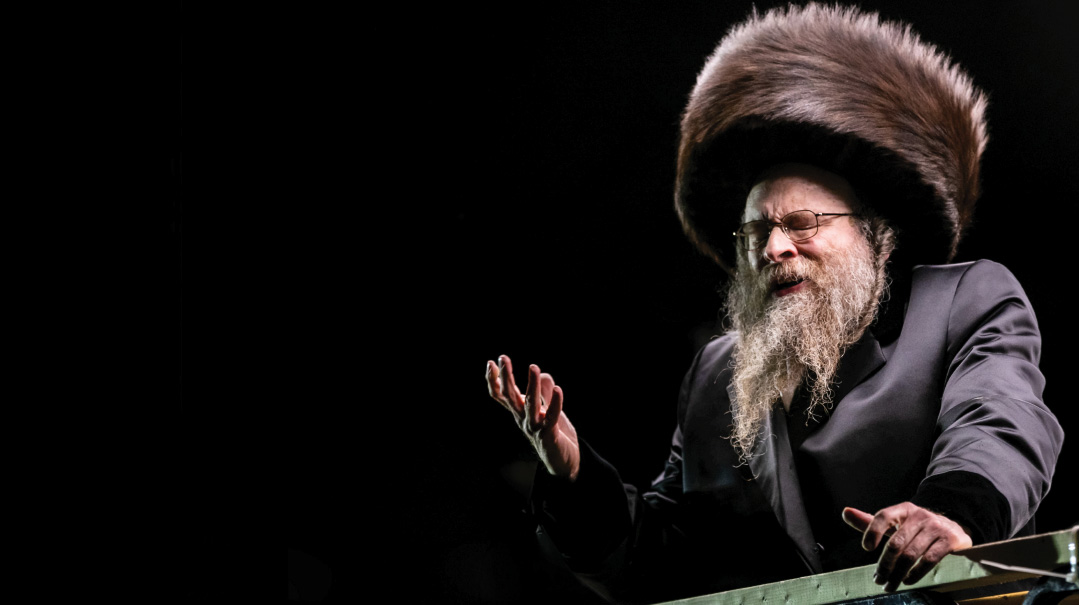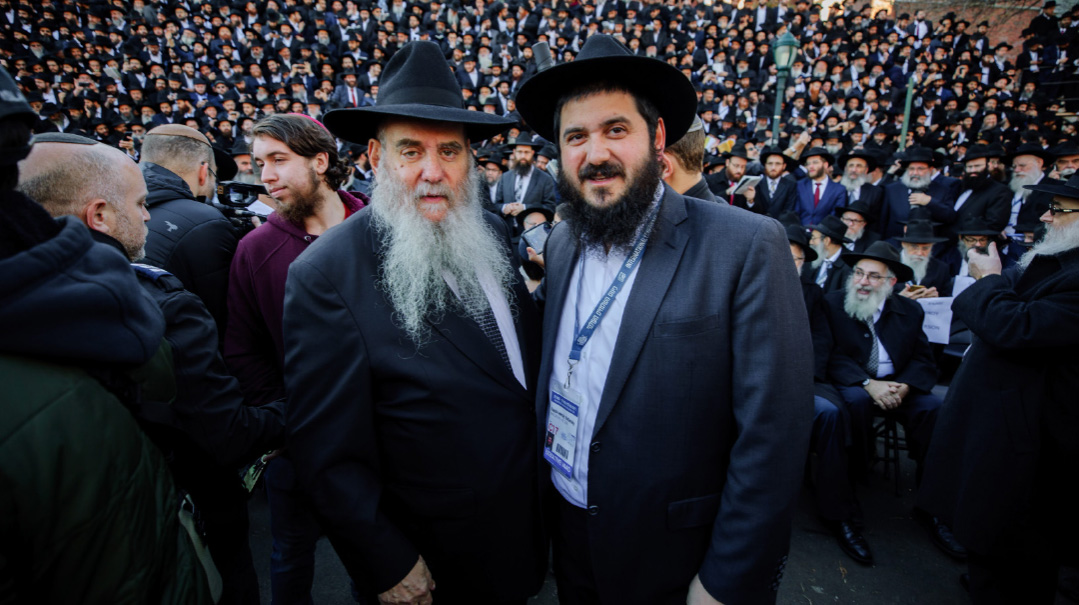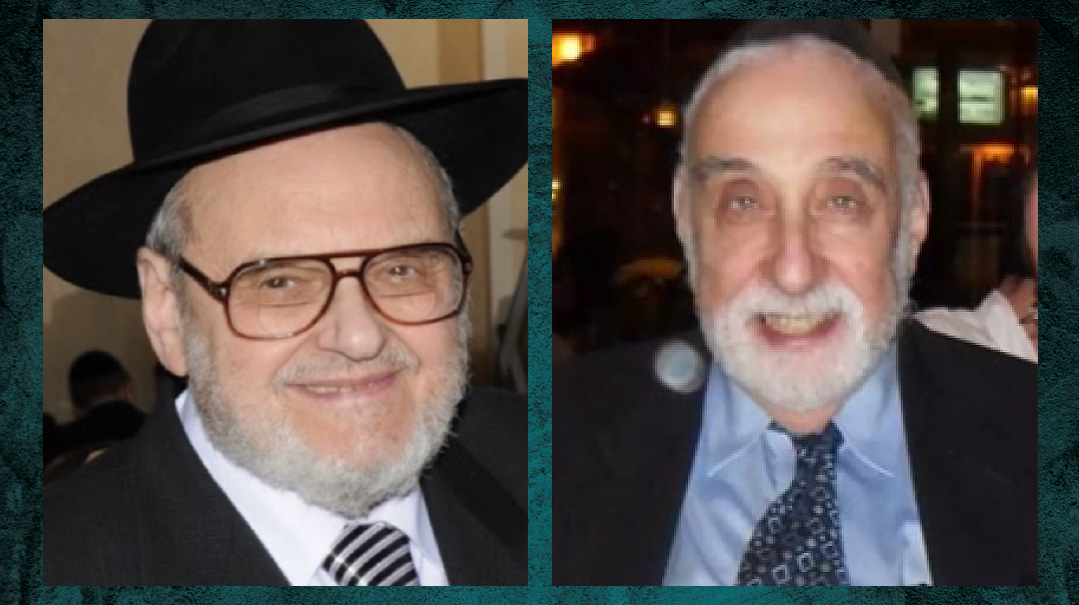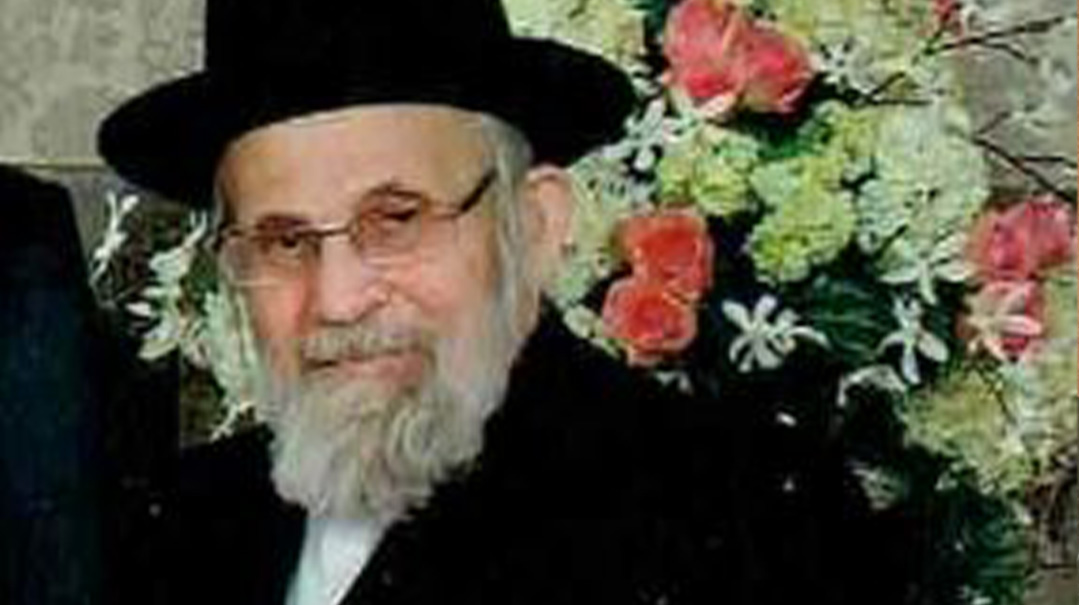The Sweetest Taste

Mourning famed Lubavitcher choizer Rav Yoel Kahn
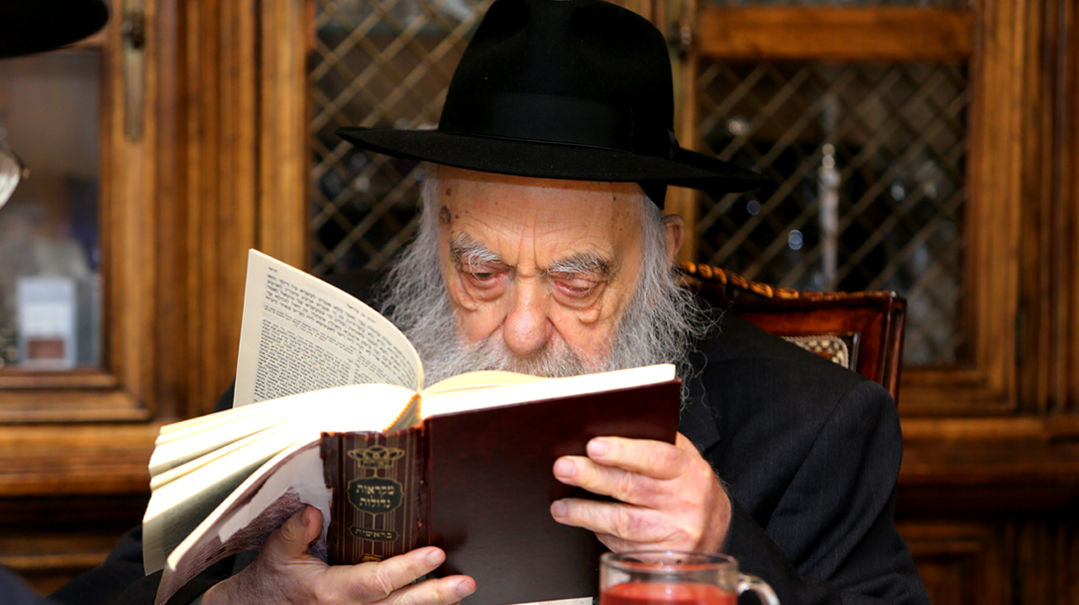
There’s a sing-song they use, Lubavitcher chassidim, a medley with which they express the words of the pasuk, “Ta’amu ure’u ki tov Hashem” — or "Hava’ya," as they say it. The Rebbe would use this tune, passed down from the Baal HaTanya, expressing a chassidic teaching:
Ta’amu, taste, ure’u, and you will see, that the Eibeshter is good.
The tune is one with the message — that the true goodness, the sweetness and delight of avodah, is accessible only to the one who truly tastes the depth of Torah.
But how can one acquire that depth?
At the side of a table covered with light refreshments, some mashkeh and paper cups, the mashpia says words of chassidus. Deeper, ever deeper, he goes as the night wears on, curtains falling away as the light of the Divine starts to shine through: Not just the seforim radiate holiness, but the tables and chairs too, the word of G-d that sustains the most mundane items nearly visible.
For generations of talmidim in Crown Heights, Rav Yoel Kahn was that teacher, the head mashpia in the central Lubavitcher yeshivah, the man charged with understanding and explaining what the Rebbe meant, of reading between the lines, opening some doors and closing others — and always, always, doing it in a way that allowed the people around him not just to hear words, but to taste.
And they saw that it was good. When Reb Yoel spoke, they saw that it was good.
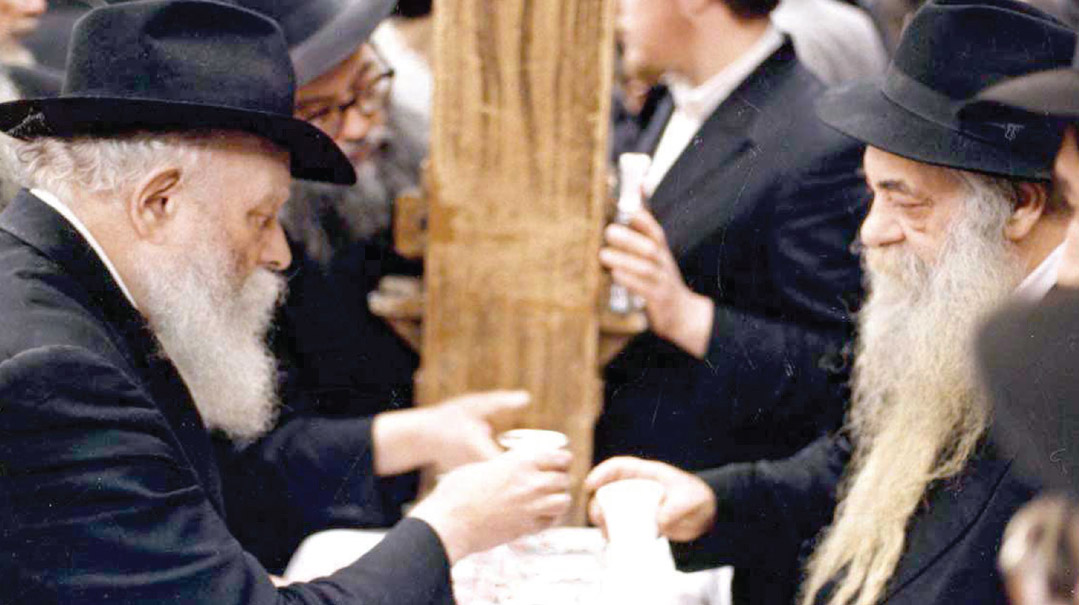
Yoel Kahn was born in Moscow in 1930 to Reb Refoel Nachman (“Folleh”) and Rivkah Kahn, members of the underground network of Chabad chassidim who operated under the noses of the NKVD. He didn’t see his father until he was three years old — Reb Folleh had been imprisoned by the Soviets for counter-revolutionary activities and the crime of maintaining a connection with Rebbe Yosef Yitzchak, the Sixth Lubavitcher Rebbe.
In 1935, the family managed to leave Russia for Poland, and via Vienna, arrived in Mandatory Palestine, where Yoel was enrolled in the fledgling Chabad yeshivah in Tel Aviv — Achi Temimim — led by Rav Chaim Shaul Bruk and Rav Dovid Povarsky, who would later be appointed rosh yeshivah of Ponevezh by Rav Yosef Shlomo Kahaneman. (A brilliant prodigy with an aptitude for in-depth study and photographic memory, young Yoel was an early chavrusa of Shloimke Berman, who later became rosh yeshivah in Ponevezh as well.)
Reb Yoel, who passed away last week at 91, would recount a single disagreement between the two roshei yeshivah, one a Lubavitcher chassid and the other a product of Kelm and the Mir. There was perfect harmony and mutual respect, but one day, a levayah was held for a chassidic rebbe in Tel Aviv. Rav Chaim Shaul held that to go to the levayah was bittul Torah, but Rav Dovid disagreed. “For people to hear that talmidim in a chassidishe yeshivah ignored the levayah of a chassidishe rebbe is a chillul Hashem, because they won’t understand it,” Reb Dovid maintained.
“You are right,” Rav Bruk said, and Reb Yoel — of course — would elaborate and share the depth:
“Emes, perfect truth, doesn’t mean being locked into a position and approach, but the opposite. Here, the chassid saw one way, that of bittul Torah, and the Litvak saw kiddush Hashem, because formal party lines meant nothing to them. Just truth.”
In 1950, Reb Yoel joined a group of Eretz Yisrael’dig bochurim who hoped to learn under Rav Yosef Yitzchak, the previous Rebbe (known as the Rayatz). The trip across the ocean took some time, and by the time they arrived in New York, the Rebbe had passed away.
They weren’t sure whether to remain at the headquarters of a chassidus with no rebbe, but Reb Yoel felt like this was his place — he was drawn to the son-in-law of the previous Rebbe, and he hoped that Chabad would have a future with this man as its leader.
He asked Rav Menachem Mendel Schneerson (known then as Ramash) directly: Should we stay or leave? It was his way of doing his part to encourage the man who would become Rebbe, to lead them.
“If my shver said you should come, then he knew what he was saying, so what’s your question?” was the answer.
In Shevat of that year, on the first yahrtzeit of the Rayatz, the son-in-law accepted the mantle of leadership he’d been rejecting for months, and the Eretz Yisrael’dig bochur, present at that relatively small gathering, suddenly had a new role.
Because the new Rebbe spoke and spoke — Torah and chassidus, halachah and Kabbalah, stories and insight — and the bochur had the brilliance and grasp to be able to remember the words of his Rebbe, and to organize and commit them to writing after Shabbos and Yom Tov.
As Chabad chassidus entered its glory era, it was the young “choizer,” the reviewer, who played a central role in its growth, the one who enabled thousands of others to partake in their rebbe’s Torah.
This would become his mission, his essence, not just the oral review of the Torah after the weekly farbrengen (the “chazarah”), but the long nights on Motzaei Shabbos and Sunday, transcribing, sourcing, clarifying, and connecting the ideas. Reb Yoel, and eventually, an entire team under his leadership, would prepare the remarks for the Rebbe’s approval, and only once the Rebbe signed off on it, was the sichah or ma’amar released in print.
Reb Yoel learned to research the mareh mekomos and scrutinize those sources, because often, the Rebbe would use just a few words to share monumental ideas. Reb Yoel tried to anticipate what the master meant, generally coming close. The Rebbe would mark up the booklets before they were printed, adding or removing, but he appreciated the work of his beloved choizer.
In time, Reb Yoel would be the conduit for thousands of pages of the Rebbe’s Torah, and following the Rebbe’s directive, he himself authored several other seforim on Chabad concepts and ideas, using his fusion of perfect clarity and penetrating depth to open up the doors to its Torah for talmidei chachamim and laymen alike.
As long as the Rebbe led, Reb Yoel would not travel, refusing to miss out even once on the chance to drink from the wellsprings; but after the passing of the Rebbe, Reb Yoel became an ambassador of sorts: no audience was too small and no venue beneath his prestige.
With his wrinkled forehead and dusty tilted hat, the large, thoughtful eyes and long scraggly white beard, he was the image of a chassid of bygone times, visiting yeshivos, leading farbrengens, and conducting discussions all over the world.
Though he was a man of the mind, he was proficient in the corpus of chassidic song, familiar with the notes and tenuos of each of the many niggunei Chabad, capable of expressing their depth and meaning just as with any other chassidic teaching.
And this old-world chassid, who spoke Yiddish tinged with a Russian accent, understood America too. He understood his people. He understood the youth. He understood the world.
In a conversation for this magazine, Hebrew-lanaguage editor Aryeh Ehrlich once asked him the secret of his prodigious memory: How was it even possible? How could a person remember the Torah said on the first day of a three-day Yom Tov and then six other sichos, and not lose a single source?
Rather than answer, Reb Yoel smiled and shared a story, as he so often did:
“One of the chozrim, realizing how complicated the task is, told me he wakes up Shabbos morning early and recites the entire Tehillim two times so that he should merit siyata d’Shmaya. That was his secret. I asked him, ‘You give up sleep to do the job right? To remember properly, you need a clear head — and that takes more sleep, not less.’”
Reb Yoel laughed and went on to say that of course siyata d’Shmaya was the key, but man has to toil. If he’s given the numbers to a safe filled with valuables or the dosage of medicine to save a life, a person does not forget.
In 1954, Reb Yoel married Leah Butman, and the couple settled in the Crown Heights neighborhood, where he became the primary mashpia of the Central Chabad Yeshivah — a teacher and personal guide to young students, introducing them to the beauty and depth of chassidic teachings. For both yeshivah students and scholars from outside the Chabad world, he was often the first stop in navigating the rich but often complex spiritual world of Chabad chassidus.
And though Reb Yoel and Rebbetzin Leah were never blessed with children of their own, he exuded the warmth and understanding of a father and zeide, connecting with generation after generation.
This super-intelligent lamdan and amkan once addressed parents of younger children and found a way to distill and consolidate the deep messages of chassidus.
“Your child is walking along on a hot day and he complains of how thirsty he is. Suddenly, a truck drives by, selling cold soda. You have the chance to explain the precision of Hashgachah pratis, how this truck driver chose to drive down this block at this very moment because the Ribbono shel Olam saw the thirst of this child. ‘My child, realize the love Hashem has for you and make a brachah, Shehakol nihiyeh bidvaro, and take a sip. Enjoy.’ When a child receives an education filled with real emunah, it takes care of 99 percent of the questions that could arise later on.”
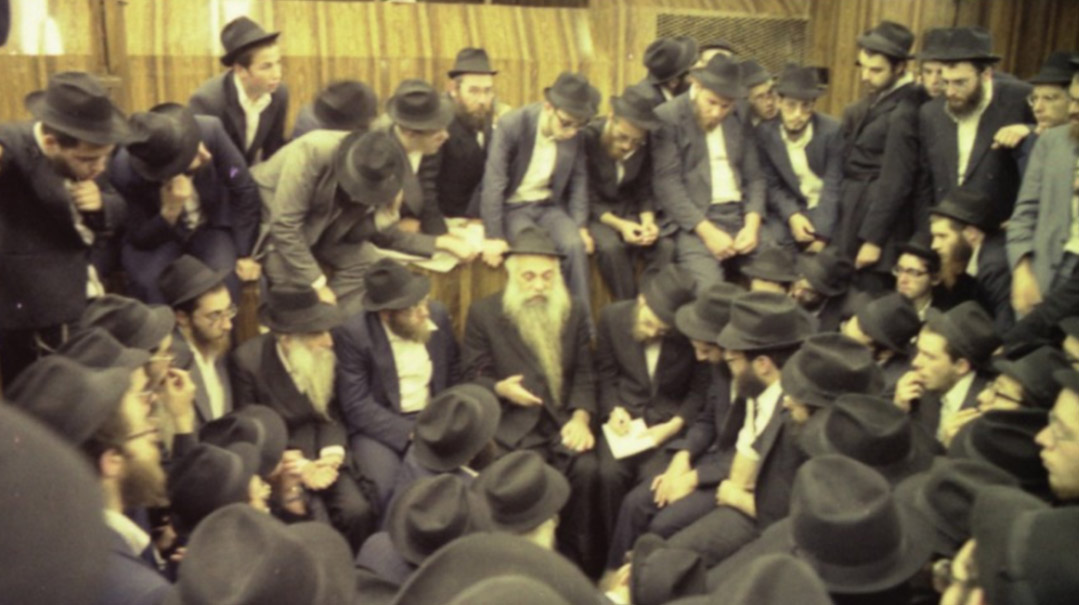
On Leil Shabbos, the choizer and his rebbetzin would host talmidim of the yeshivos — the dining room filled, chairs spilling into the hallway. Bochurim of all stripes knew that was the place to be. The Rebbetzin would prepare delicious food, and Reb Yoel would schmooze with them: The conversations went in many directions, but always, they were laced with emunah, with chassidus, and with real uplift.
He was a teacher first, and these were his children.
Rabbi Yoel Deitsch, a young shaliach in Israel’s south, was a regular guest at Reb Yoel’s table during the recent years he learned in Crown Heights. He relates how the 30 or 40 bochurim who would regularly invite themselves to Reb Yoel’s table weren’t coming for the food — sometimes the seudah wouldn’t even begin until several hours after davening was over.
“He was already in his eighties, and knew he’d be spending the next few hours learning and speaking with the bochurim, so he’d take a break to learn first and gather his koach,” says Rabbi Deitsch. “By that time, there were so many bochurim that one had to register in advance. Right after Shabbos we’d get together and do chazarah on the Torah we’d heard. I have a stack of notebooks from the Torah of those Shabbos meals.”
And it wasn’t only bochurim. Crown Heights was a magnet for intellectuals from all over the world — from doctors to university professors, those moving toward Yiddishkeit or perhaps merely curious — and for decades, Reb Yoel’s table was a popular address.
“Many famous names started out at his table,” says Rabbi Meir Kleinman, a close friend of Reb Yoel, who grew up in Satmar, became close to Chabad, and for many years ran Heichal Menachem in Boro Park and helped produce the multi-volume Chassidus Mevu’eres. Rabbi Kleinman says that one of Reb Yoel’s most precious gifts was his ability to communicate the deepest, most profound concepts of chassidus to those who didn’t speak that language. He was as big a mashpia outside Chabad as he was within.
“He would come to Boro Park on Thursday night and Motzaei Shabbos, speaking to a crowd of shtreimels,” Rabbi Kleinman relates. “Yet he infused everyone there with a deeper and clearer emunah. You couldn’t come in there and not undergo a transformation. After the shiur dozens of people would surround him, begging for further clarifications — and those conversations would go on for much longer than the shiur itself.”
He remembers the night the Gulf War began in 1991. Saddam Hussein promised to shoot thousands of chemical warhead missiles on Eretz Yisrael, and although the fear in New York was palpable, the Lubavitcher Rebbe said everything would be okay — no fear. Reb Yoel was in the middle of his shiur, when reports suddenly came in of the first round of missiles — and then a car with a loudspeaker went driving up and down the street outside calling Yidden to come to the main Bobover beis medrash for Tehillim. Reb Yoel noticed that he was losing his audience, and turned to the Belzer chassid sitting next to him for an explanation.
“Reb Yoel, you didn’t hear? Saddam Hussein is shooting missiles at Israel and a car is going around to say Tehillim!”
Reb Yoel just made a dismissive gesture with his hand. “But Reb Yoel!” said the Belzer chassid, “we heard!” Reb Yoel answered him, “Later you’ll hear differently.” He had total faith in the Rebbe, continued the shiur, and drew the others along.
Reb Yoel, prolific until the very end, kept on writing, working out of a cramped office at 760 Eastern Parkway — volumes of his Sefer Ha’arachim coming out until recent years. Last week, the heart of this giant, this teacher and listener and guide stopped — and 70 years of extraordinary harbatzas Torah and chassidus ended very suddenly.
And they mourned for him as for a father, for who like him could be so dedicated to the Torah of another with the selflessness and self-nullification of a chassid, yet present it with the clarity and benevolence of a loving teacher?
It was Reb Yoel, the reviewer of his rebbe’s Torah, who allowed them to taste.
And through him, they found just how sweet it was.
(Originally featured in Mishpacha, Issue 870)
Oops! We could not locate your form.







